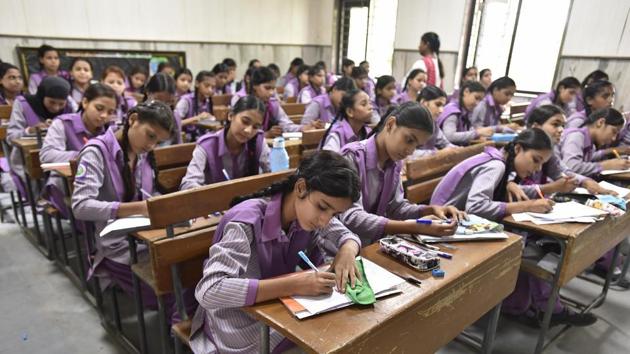Cabinet to scrap no-detention policy in schools
The proposal also give states the right to hold additional exams and remedial classes to ensure a higher number of students pass their exams.
States will soon be able to able to conduct exams for students of class 5 and 8 and detain them if they fail, as the Union Cabinet approved a proposal on Wednesday for scrapping the ‘no-detention policy’, according to sources.

However, before being detained, students will get another opportunity to clear the exam, and only if they fail in that exam will they be detained.
Under the existing no-detention policy, students are promoted automatically to higher classes every year till the eighth grade.
“The proposal has been approved by the Union Cabinet, under which states have been empowered to take decision on detaining the students,” a source said, adding that certain safeguards have been introduced, such as remedial classes and an additional chance to pass the exam.
For instance, students of classes 5 and 8, who do not pass the examination in March, will be given another chance in May or June. Before sitting for the second exam, they will be asked to attend ‘remedial classes’. They will be detained if they fail in that exam, according to the proposal which was put up for the cabinet’s consideration.
Sources said the government will introduce a bill in Parliament as the move requires amendment to the Right to Education (RTE) Act.
Once the new system comes into force, the onus would be on the states to decide whether to hold examinations in classes 5 and 8. States can also hold exams for classes 6 and 7, but they will not be able to detain students at those grades.
“An enabling provision will be made in the RTE amendment bill that will allow states to conduct examinations in class 5 and class 8 and detain students if they fail,” said a senior HRD official.
A key component of the RTE Act, the no-detention policy unveiled by the UPA government came into force on April 1, 2010, with the intention of ensuring that every child aged between 6 and 14 received school education. However, for the past few years, concerns have been raised about the negative impact of the policy on the academic performance of the students.
After holding consultation with states in the Central Advisory Board of Education meeting last year, it was decided to give states the right to decide whether they want to have a no-detention policy or not. The move will allow states to evolve their own policy of detention from Class 5. This requires amending the RTE Act.
Many states, especially Delhi, have been vocal about the flaws in the no-detention policy that has affected the quality of education.
However, Telangana and Tamil Nadu have opposed the proposed amendment to the policy. The policy is likely to come into force from 2018.











